Category A:
AGSC 2200
This course was incredibly interesting to me and it completely changed my outlook on food systems and sustainability. I can honestly say that I had never considered how complex a scenario the messaging around dietary guidelines combined with environmental considerations is. I had thought that everyone had the same level of health and environmental literacy I did. For example, through this course I learned how deeply intertwined health guidelines of the 20th century are with the increased emphasis on dairy and meat products as health building food and then how although the messaging has changed now, how hard it is for individuals to enact that change because of how deeply rooted the previous messaging is. Thus contributing to the increase in I gained a much deeper appreciation for how sustainability, health messaging, and policy making are all deeply intertwined.
BIOL 1210
This was most definitely one of my most favourite Biology courses. This course incorporated sustainability through increasing understanding of how animals interact with their environment. In the context of today’s rapidly changing environment, animals might evolve to fit the current climate but a lot of species will also go extinct. Through knowledge learned in this course, I understand how important it is to prevent species from going extinct because of the vital role each one does in our environment and making it hospitable to humans.
HLTH 2300
While this course isn’t listed on the list, I have still made a last minute decision to include it. I was reflecting on sustainability and I really believe the we cannot have a conversation about the environment without honouring Indigenous knowledge. This course impacted my learning about environmental sustainability in the most profound way. We learnt about how important land and preserving the ecosystems is to Indigenous populations and how it directly correlates with Indigenous determinants of health. One of the most memorable classes was when we had a guest presenter come in and speak with us about waterways and how they are so deeply tied to health in Indigenous communities. Furthermore, it helped me define health as beyond just that of physical wellbeing, but incorporating an environmental wellbeing aspect as well. Overall, it made me recognize how vital sustainability is, not just in terms of halting climate change, but in terms of lifestyles and health equity.
NURS 1730
This course was revolutionary to my learning as it helped me understand he interconnectedness of health and the environmental and empowered me to make an active effort to include environmental considerations into my nursing practice.



Category B:
Adventures of Co-Creating a Sustainable BC! – 15h/month from September to May
During the 2019-2020 school year, I was part of a pilot project initiative by the Fraser Basin Council called Co-Creating a Sustainable BC. This initiative involved making a groups of youth from their community who are interested in sustainability and then providing them with tools and connections to come up with a project that would contribute to sustainable practices and development in their region. Our group chose to try and implement curb side composting but in conversations with the City and other decision makers we realized it was something already in the works and not likely to be implemented over 10 months so we shifted gears to work on providing businesses in town with the knowledge, tools, and equipment to compost their waste. The entire initiative was split into 3 phases; consulting with experts, planning and implementation. This initiative really increased my knowledge of what a sustainable community looks like and how to go about implementing ideas into actions.
Here is a link to the website where pictures of me taking part are posted: https://fbcyouthprogram.ca/ccsbc/
The link to the final presentation we did is my give back piece so you get to hear more there 🙂
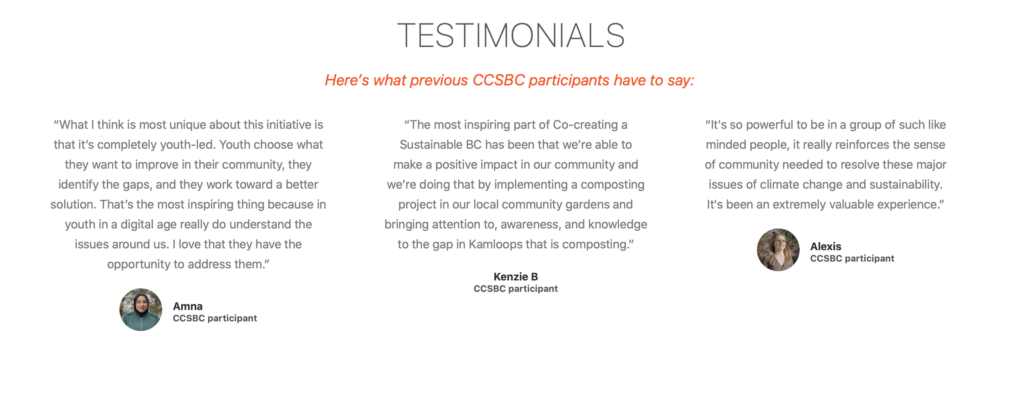
Picture of my testimonial from the website
Category D:
Fraser Basin Council – Youth Advisory Committee
For 2 years now, I have been part of the Fraser Basin Council’s Youth Advisory committee dedicating about 4 hours each month to a meeting where we discuss, plan, and brainstorm on topics related to the Fraser Basin Council’s Youth Programs which are all centred around sustainability and how to involve youth in sustainable initiatives. We even get to consult on projects like clean energy and give our feedback!
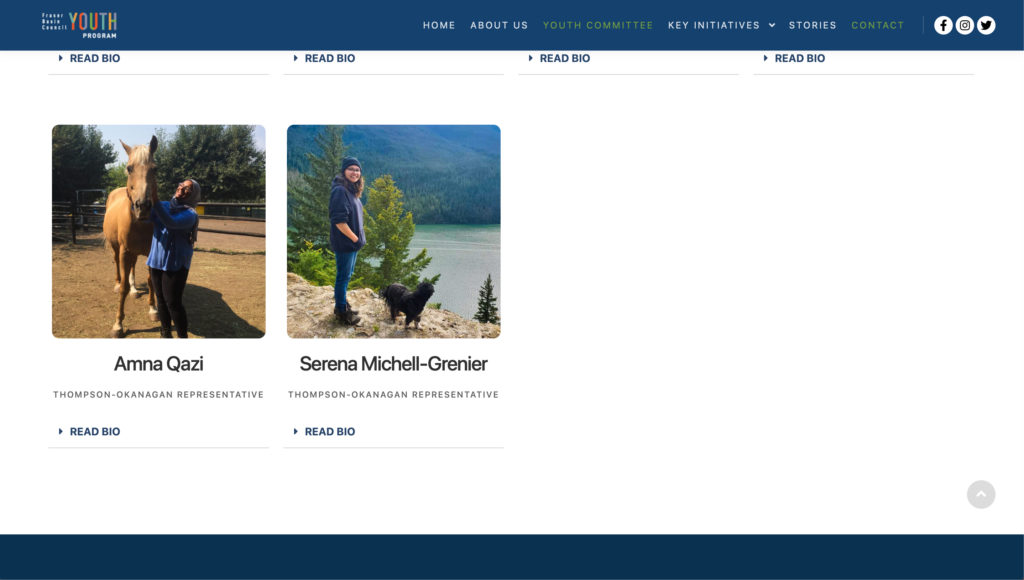
From my experience working as an Intercultural Storyteller at TRU, the youth program’s coordinators asked me to build a social media guide for them. So as part of my contribution to the Fraser Basin Council I created a social media guide. While you may wonder “what does social media have to do with sustainability”. The reality is, that everything depends on messaging. We live in a world where we are constantly bombarded with messaging of all sort and if we can learn how to get the message across to youth that there are safe, free, and engaging opportunities for them to make a difference in sustainability that is directly related to sustainable development because its creating an atmosphere where we can then work on environmental sustainability.
Link to Youth Advisory Committee page, you can find my bio and picture there. https://fbcyouthprogram.ca/yc/
Link to social media guide: https://sites.google.com/view/fbcsocialmediaguide/home
This guide took me more 20 hours to complete and involved lots of discussions with FBC staff on how to present climate change and sustainability to youth in a way that would entice them to take action.
Category E:
Adaptation Canada Conference 2020 – Attended and played the role of a youth observer (Occurred before the onset of the COVID 19 pandemic)
Before the COVID days, when we actually attended conferences in purpose while my classmates relaxed on their reading break. I took a plane to Vancouver and attended the Adaptation Canada conference. I cannot even put into words how MUCH I learnt there. This is where my brain really understood how to combine health and climate change together. The more I listened the more I realized that I had to incorporate the knowledge of climate change into my nursing practice. As the climate warms, more and more people are put at risk for heat related illness and death and as a nurse, we can help with patient teaching around what to do to keep cool and connect our clients with community resources if they do not have air conditioning at their home.
I also got to meet the fabulous Sheila Watt Cloutier and got a signed copy of her book! I once again just was stricken with how urgent it is for us to find a way to mitigate climate change or make contributions and efforts to stop it if we can since she spoke of northern communities being dependent on the cold to continue living their lifestyles; thus the name of her book “The Right to be Cold”.
I got to make a speech about how now that we have more knowledge and are energized the steps we need to step or considerations we need to keep in mind to put words to action when we get home but unfortunately I have been unable to locate the speaker notes.
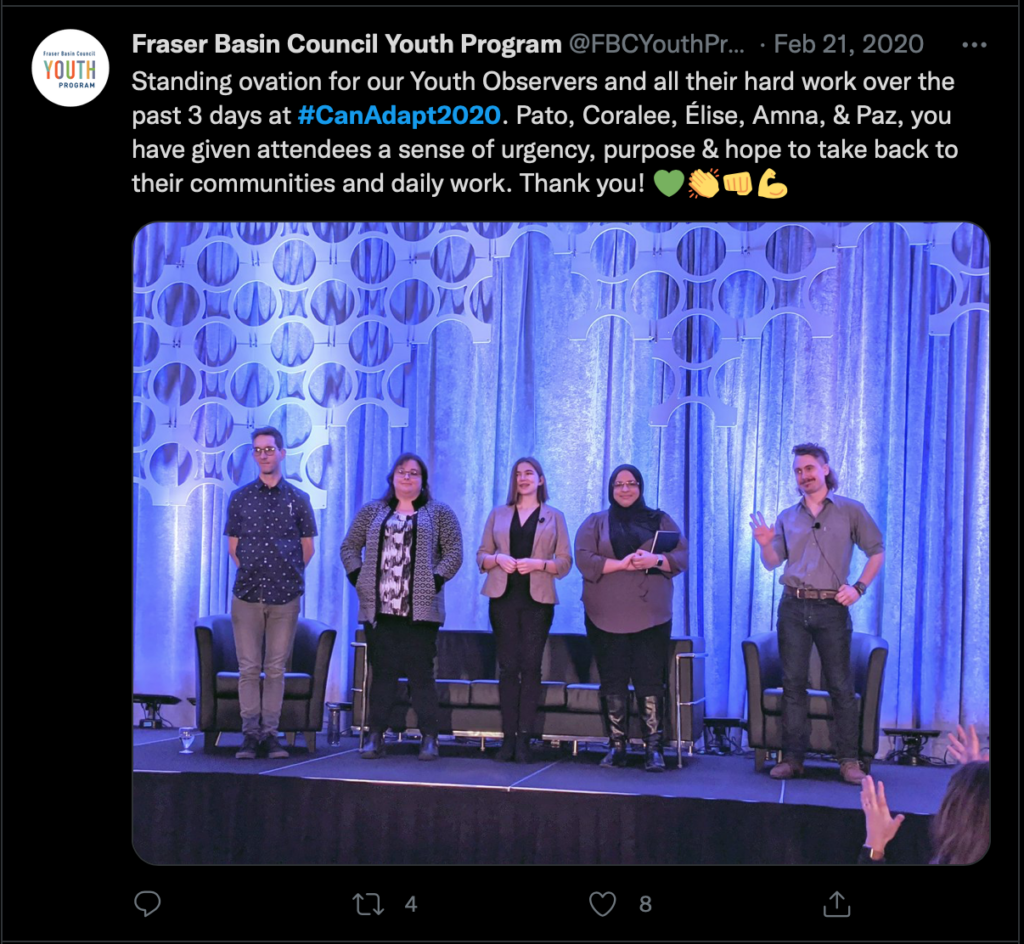
Role description:
More pictures:
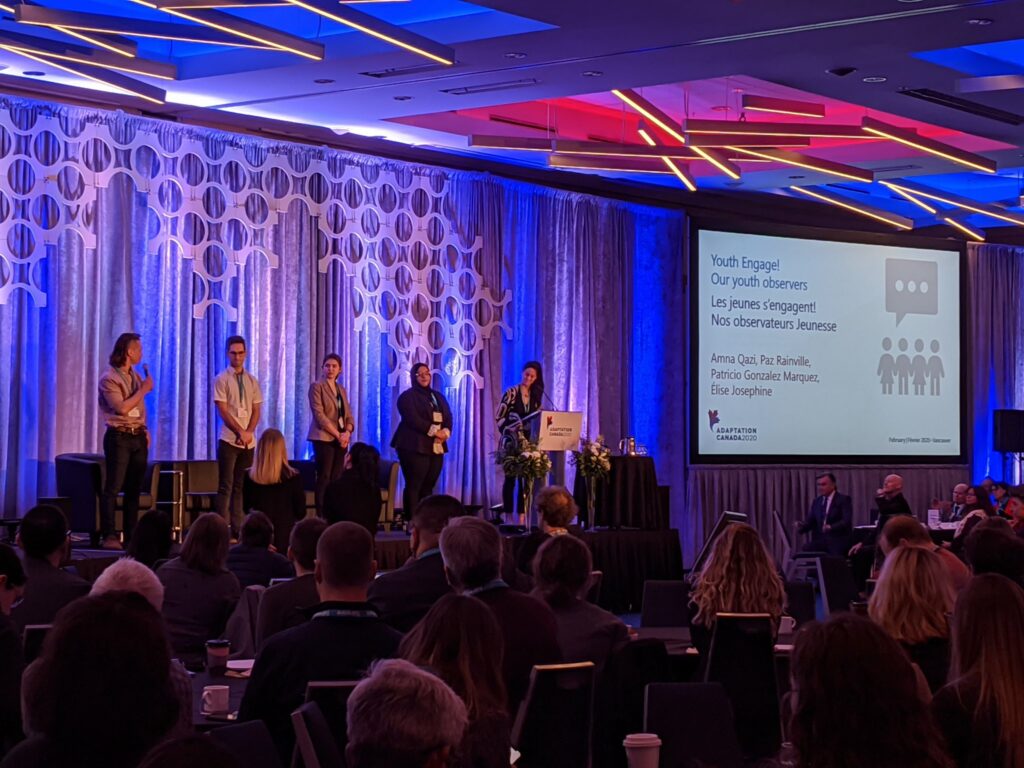
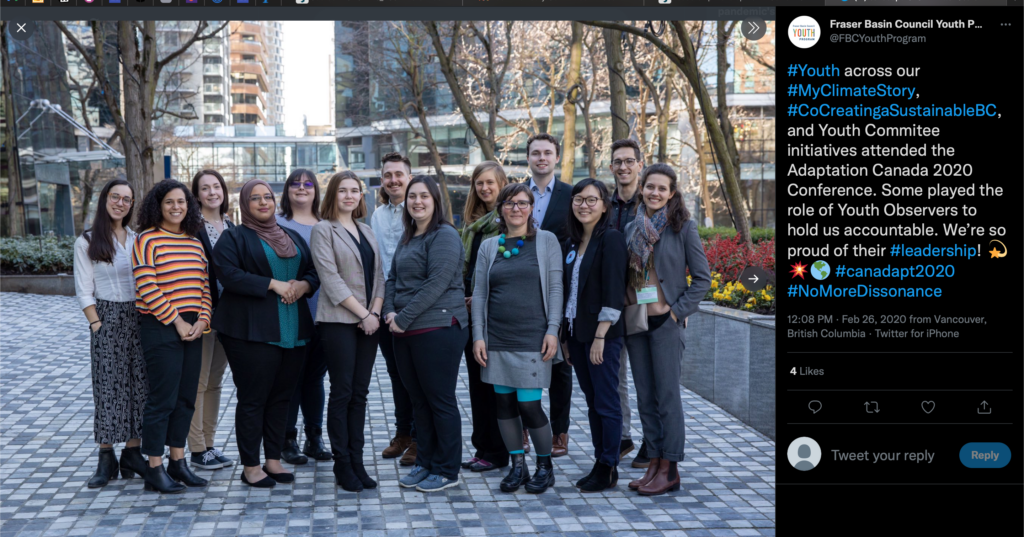
Category F:
AGSC Food Sustainability Video Project
This video was filmed before I had developed my camera skills but it really represents my understanding of sustainability because I took the concepts spoken about in class and make connections to it on a global level.
Despite having completed this project, I still think about how sustainable my food sources are and really enjoy exploring how different cultures practice sustainability.